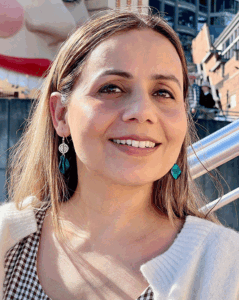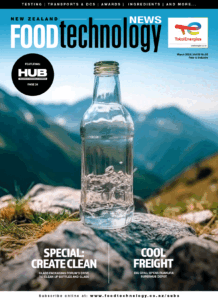By Dr Lovedeep Kaur, Massey University

Using sustainable technologies to replace conventional processing and preservation methods is an innovative approach for the meat processing industry. At Te Kunenga ki Pūrehuroa Massey University, we are exploring the potential benefits of some innovative methods and technologies that can be employed for this purpose, including microwave-assisted thermal treatment (MATS). This technology combines microwave heating with traditional thermal sterilisation to enhance the quality and safety of meat products.
It has been tested on tough goat and lamb meat cuts using microwave pasteurisation and sterilisation (CiMPAS) equipment within Massey’s FoodPilot. This technology is capable of significantly reducing the cooking time for those meat cuts that often require multiple cooking hours.
Other technologies that are being tested at Massey include ultrasound, pulsed electric fields, high-pressure processing, and proteolytic enzyme treatments such as actinidin from kiwifruit. Plant oils and extracts, such as those from the East Cape mānuka, have shown the potential to be used as natural antioxidants and antimicrobial agents and, therefore, may replace chemical preservatives used in processed meat products.
By incorporating these sustainable technologies and practices, the meat processing industry can offer more appealing and environmentally friendly products, particularly using low-value or less commonly consumed meat cuts. The expense of adopting these emerging technologies by the industry can differ, depending on the technology and its current stage of development, and is often determined by factors like economies of scale and ongoing research and development endeavours.
However, promoting the use of local and native ingredients like mānuka and kanuka can contribute to the preservation of local ecosystems and support sustainable agriculture.
Dr Lovedeep Kaur is a senior food scientist at Massey University, within the School of Food and Advanced Technology. Her research includes meat chemistry and processing, digestion of foods, alternative and plant proteins, and natural food preservatives. She is focused on solving the practical problems experienced by our food industry and collaborates with national and international food companies.






























































































